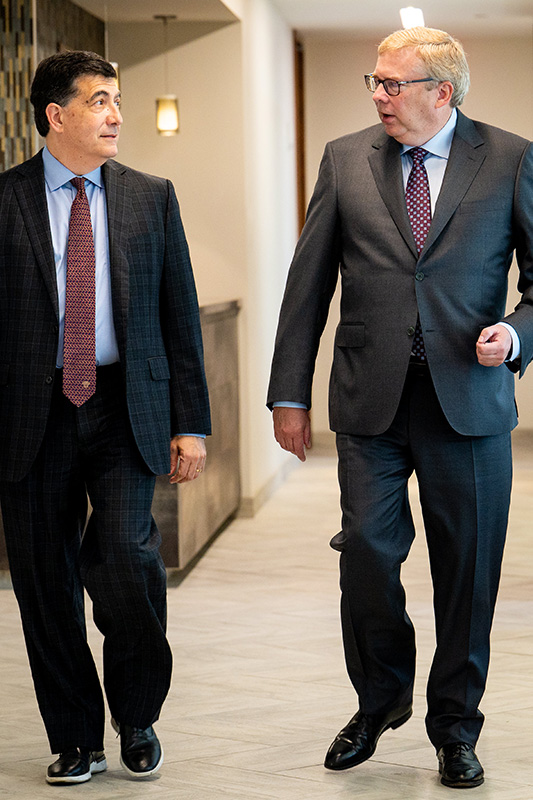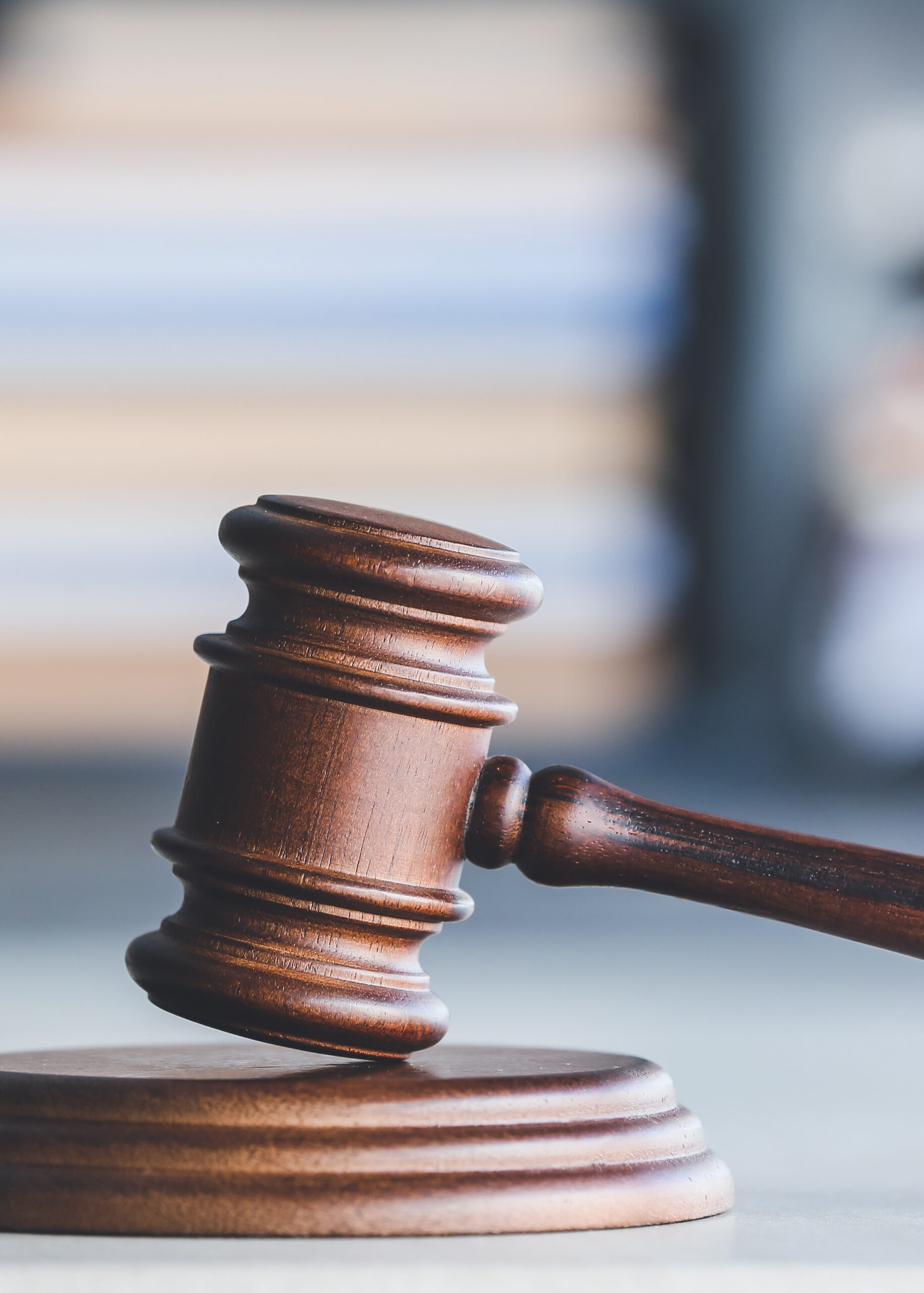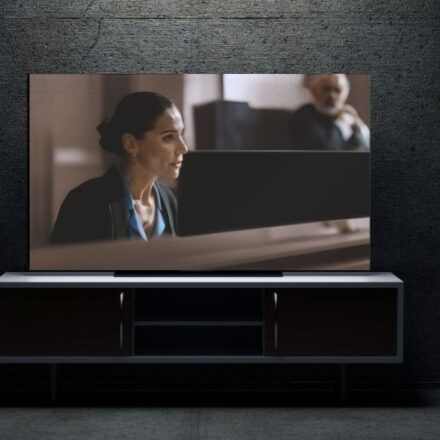
KJK maintains a substantial litigation practice with a strong regional and national reputation. With offices in Cleveland and Columbus, Ohio, KJK’s attorneys litigate in state and federal courts and in arbitration tribunals throughout the United States, and advise clients worldwide. Our litigation attorneys have tried cases to judges and juries, and routinely handle complex commercial lawsuits. We are also experienced in representing national broker-dealers, registered investment advisory firms, clearing firms and individual brokers and investment advisors in securities arbitration work.
Litigation & Arbitration
What wE do
- Appellate Litigation
- Beverage & Alcohol Litigation
- Broker-Dealers & Securities Clients
- Financial Institutions & Securities Litigation
- FINRA & Securities Arbitration
- Securities Litigation
- Class Action
- Construction Litigation
- Consumer Protection Litigation
- Data Privacy & Cyber Security
- Government
- State & Federal Discrimination Claims
- State & Federal Employment Litigation
- Regulatory Compliance & Enforcement
- Corporate
- Corporate Compliance
- Business Contingency Litigation
- Director & Officer Liability
- Partnership Disputes
- Employment Litigation
- Non-Compete Enforcement & Defense
- Government Investigations
- eCommerce Litigation
- Product Liability
- eDiscovery & Document Retention
- IP Litigation
- Contract, Business, Commercial & Consumer Disputes
- Shareholder Disputes
- Telephone Consumer Protection Act (TCPA)
- Health Care Litigation
- Individuals
- Domestic Relations Litigation
- Probate Litigation
- Fraud Investigation, Prosecution & Defense
- IP Litigation
- Unfair Competition
- Mediation
- Real Estate Litigation
- Student & Athlete Defense Litigation
- Wage & Hour Class Action Defense
Innovative Program:
Litigation Programs
Our experienced attorneys employ a pragmatic, proactive approach coupled with savvy judgment to effectively address our clients’ most critical litigation issues.
BUSINESS CONTINGENCY LITIGATION
Whether we’re representing the plaintiff or defendant, KJK can develop a contingent fee arrangement to meet your needs, including blended structures with capped hourly fees or reduced contingency percentages so that you can take greater advantage of the possible upside in your case.
Representative Experience
- Secured eight-figure recovery for three large nonprofits in one of the first collateralized debt obligations cases to go to trial
- Saved manufacturer of complex machinery more than $10 million defending them against a claim for breach of warranty
OUTSOURCED LITIGATION MANAGEMENT
Cost-Effective
- We ensure that all discovery requests are responded to efficiently and without undue burden
- KJK’s attorneys ensure that cases are handled timely, strategically and effectively without the cost, expense or overhead associated with traditional, full-time in-house counsel
Single Point of Contact
- Our team is the point person for all outside counsel and ensures cases are properly and consistently handled
- We maintain internal reports on material claims and legal proceedings and support the work of in-house counsel in reporting to a company’s board of directors

Litigation & Arbitration
What Sets Us Apart
Business-Focused
KJK’s litigation attorneys prioritize business realities when litigating cases. By focusing on economic factors and staying responsive to our clients’ needs, your litigation strategy will be informed, first and foremost, by your business strategy.
Proactive
When time is of the essence, KJK’s civil litigation attorneys are experienced at obtaining immediate relief and strategically filing lawsuits to best protect your interests.
Flexible
Arbitration and mediation can be viable alternatives to traditional litigation or may be required by your contracts. KJK’s attorneys have decades of experience with a variety of arbitration formats and have won significant victories for clients.
Service:
ALTERNATIVE DISPUTE RESOLUTION
Pursuing in-court litigation isn’t always the best course of action for legal disputes. First, in scenarios necessitating confidentiality and flexible scheduling, arbitration emerges as an appealing alternative, providing the desired privacy and adaptability. Further, whether in-court litigation or arbitration, parties often engage skilled mediators to facilitate this resolution process. Over 90 percent of lawsuits end in a pre-trial settlement. Mediation and Arbitration present parties with alternative methods to resolve their disputes.

AWARDS & PROFESSIONAL AFFILIATIONS
Awards
- Selected to Ohio Super Lawyers, 2008 – 2023
- Martindale-Hubbell AV® AV Preeminent Attorney – Judicial Edition 2017 – 2022
- America’s Most Honored Lawyers – Top 1% 2016 – 2022
- Martindale-Hubbell AV® Preeminent™ Peer Review Rated Attorney
Professional Affiliations
- Cleveland Metropolitan Bar Association
- American Arbitration Association
- Commercial and Consumer Arbitrator
- Meritas
- Chair, 2021 – 2024
- Executive Committee & Vice Chair, Board of Directors, 2018 – 2020
- Chairman, Quality Assurance Committee, 2018 – 2020
- Board of Directors, 2016 – 2018
- Membership Committee, 2014 – 2018
- Chairman, Annual Meeting Planning Committee, 2017
- Member, Annual Meeting Planning Committee, 2016
BAR / COURT ADMISSIONS
- Ohio
- District of Columbia
- Illinois (Inactive)
Alternative Dispute Resolution Spotlight:
Brett Krantz
As a neutral with over 30 years of experience, Brett Krantz has developed a skilled Alternative Dispute Resolution (ADR) practice. Leveraging his extensive litigation background, diverse client portfolio, and proven success in ADR, Brett has participated in numerous commercial, consumer, employment, and securities arbitrations. He is a commercial and consumer arbitrator and arbitration chair both privately and through the American Arbitration Association (AAA), the largest U.S. private provider of ADR services. Furthermore, Brett has served as a securities arbitrator with FINRA for over a decade, trained both as an arbitrator and to chair an arbitration panel. He has also advocated in dozens of arbitrations, including many that have gone to hearings.
Additionally, Brett has participated as an advocate in numerous meditations, from smaller employment matters to large securities class actions. He has completed extensive mediation training as a Commercial Mediator through the Ohio Supreme Court, does private mediations, and is a mediator on the ADR Federal Court Panel for the United States District Court for the Northern District of Ohio. His accomplishments have been recognized by Ohio Super Lawyers and America’s Most Honored Lawyers (Top 1%). He also holds a Martindale Hubbell AV Preeminent Rating (5.0 out of 5.0).
Litigation & Arbitration
Frequently Asked Questions
How does the process of litigation generally work?
The party who has been sued (the “defendant”), is then provided with the complaint and provides the court their answer as well as any claims they believe they have against the party who brought the claim (the “plaintiff”) or against other parties required to determine the dispute. The defendant may also attempt to have the court throw out some or all the claims on the ground that the allegations, even if true, do not present legal claims.
Once it is determined what parties and claims are appropriately before the court, the discovery stage can commence. This is often the most timely and costly period in litigation. The parties can seek information from others, including the other parties and third-parties, through written questions, documents and oral questioning of witnesses. Disputes unfortunately often arise at this stage and the court may be asked to rule on discovery disputes.
Following discovery, the parties may move to narrow the issues in the case or to dismiss the case in total (“summary judgment”). Here the moving party will argue that, based on the claims and the discovery which has been completed, there are no material factual disputes, and they are entitled to a judgment on those claims.
If any claims survive summary judgment, the case then proceeds to trial.
What is e-discovery?
Are there alternatives to court litigation?
How are legal services billed for litigation?
Are my attorney fees recoverable after litigation?
Litigation & Arbitration
Read Our Blog
A $13.85 Million NIL Deal Gone Wrong: Jaden Rashada Sues University of Florida
On May 21st, Jaden Rashada, a former top college football prospect, filed a lawsuit against prominent figures associated with the University of Florida (UF) football program, including UF coach Billy Napier, because of a failed name, image, and likeness (NIL) deal....
Protecting Your Company’s Confidential Information: Takeaways from Meta’s Lawsuit Against Its Former Employee
Meta Platforms Inc., the parent company of Facebook, Instagram, and other products, recently filed a lawsuit in a California state court against a former vice president for allegedly taking confidential information from Meta to his new employer, an artificial...
As Seen On TV: Myths and Facts About Litigation
TV shows about lawyers are exciting, fast-paced and sexy. Not so much in real life. While entertaining, attorney TV shows do not reflect the reality of how litigation is conducted and can have a negative effect on what people expect when they deal with actual,...
Litigation & Arbitration
attorneys

Samir B. Dahman
CO-CHAIR

John D. Ramsey
CO-CHAIR

Brett Krantz
PARTNER

Jon W. Groza
Contact
CLEVELAND OFFICE
1375 East Ninth Street
One Cleveland Center, 29th Floor
Cleveland, OH 44114-1793
COLUMBUS OFFICE
10 West Broad Street
One Columbus Center, Suite 2500
Columbus, OH 43215





























